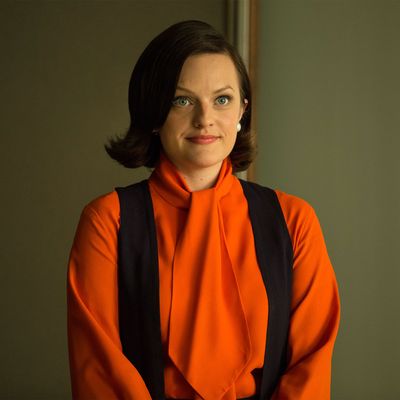
After a lawsuit was filed against former chairman-CEO Gustavo Martinez of advertising agency JWT this March, one that alleged he was the perpetrator of gender and race discrimination in the workplace, a spotlight began to shine anew on the advertising world. Had advertising really moved past its Mad Men days of ass-grabbing and martini lunches? In a New York Times piece from this weekend, it seems like the ad industry still has a long way to go.
The Times interviewed over a dozen women in the advertising industry, many of them executives. Advertising still has a dismally low number of women working in positions of power: Of creative directors in advertising, only 11 percent are women. Jean Batthany, executive creative directory at DDB Chicago, told the Times, “Yes, there is the rapey talk and the grabby hands, but it’s that subtle stuff that’s chronic and can be more damaging.” Many women explained that one of the most difficult things about working in a male-dominated culture is deciding whether to adjust to the culture, or stay steadfast in their behavior. Golf trips, steak dinners, drinking, box suites at sporting events: Should women force themselves to participate?
The global chief executive of Omnicom’s Accuen agency, Megan Pagliuca, explained the predicament: “Do you try to conform and be like them rather than being yourself, or do you stay strong as who you are and know you are the best operator? A challenge for women is making that choice.” But those decisions aren’t even the half of what makes being a woman in advertising so trying. As diversity at the workplace becomes a hot-button topic, the men who claim to want the ratio to shift in women’s favor can still be completely blind. Susan Credle, global chief creative officer of FCB, told the Times about a time she was completely ignored (after a man gave a talk on diversity, no less):
She recalled standing with two men while waiting to go onstage at an annual advertising conference in March when another man came off the stage. That man, who had just spoken about diversity in the industry, acknowledged the two men with her, but “didn’t bother to look at me,” she said. “I felt invisible.” “There are times when I experienced things that I don’t think I would have experienced if I weren’t a woman,” she said. At the same time, however, she emphasized that many men in the industry had helped her succeed and that for her the bad experiences had been rare.
At least one agency is trying to right a history of advertising’s wrongs. In January, Badgers & Winters vowed to never objectify a woman in any of their advertisements from that point forward. Not a bad start, if only a start.
The Times interviewed over a dozen women in the advertising industry, many of them executives. Advertising still has a dismally low number of women working in positions of power: Of creative directors in advertising, only 11 percent are women. Jean Batthany, executive creative directory at DDB Chicago, told the Times, “Yes, there is the rapey talk and the grabby hands, but it’s that subtle stuff that’s chronic and can be more damaging.” Many women explained that one of the most difficult things about working in a male-dominated culture is deciding whether to adjust to the culture, or stay steadfast in their behavior. Golf trips, steak dinners, drinking, box suites at sporting events: Should women force themselves to participate?
The global chief executive of Omnicom’s Accuen agency, Megan Pagliuca, explained the predicament: “Do you try to conform and be like them rather than being yourself, or do you stay strong as who you are and know you are the best operator? A challenge for women is making that choice.” But those decisions aren’t even the half of what makes being a woman in advertising so trying. As diversity at the workplace becomes a hot-button topic, the men who claim to want the ratio to shift in women’s favor can still be completely blind. Susan Credle, global chief creative officer of FCB, told the Times about a time she was completely ignored (after a man gave a talk on diversity, no less):




